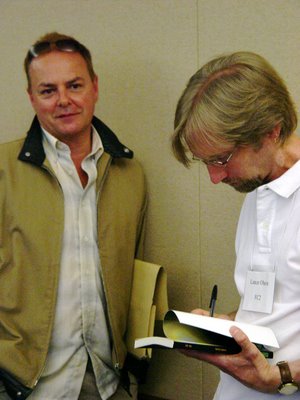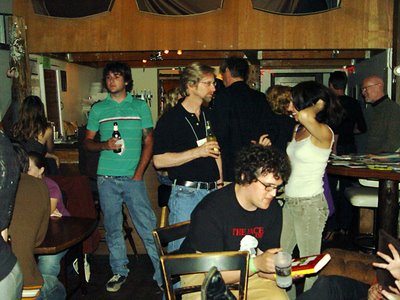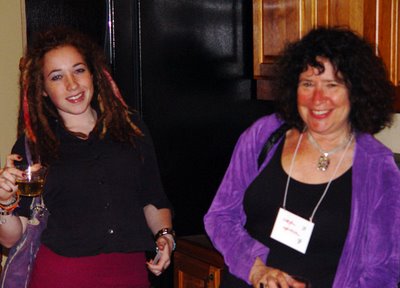At the core of the get-together were five workshops. Lidia Yuknavitch led "Five Easy Pieces: How to Form, Deform, and Reform Narrative Using the Fictional Fragment" that posed the question: "What happens if we turn away from the idea that narrative form must be unified in traditional ways?" Susan Steinberg taught "Writing Obsession, Writing As If Obsessed" that explored "the ways in which various modern and contemporary authors effectively writing obsession/obsessively consider the inextricable relationship of form and content, paying particular attention to (often unconsciously chosen) rhetorical and experimental devices: repetition, recursion, ranting, listing, among many others." R. M. Berry's "What Is Writing?" grew "out of the idea that the principle mark of radically innovative writing is its somehow posing the question of its own nature and existence." Michael Martone led a workshop on appropriation entitled "Nixon Remix," and I led one entitled "Fiction as Possibility Space" that asked participants to think and rethink the metaphors workshops usually employ when talking about writing fiction.
The faculty read from their work on campus the second evening, while around 9:00 p.m. each night everyone descended on a different local bar, thanks to Garrett Strickland and the Phase One Reading Series, for an open mic and sampling of avant-garde music. Each afternoon offered participants, among other possibilities, a Multimedia Exhibition Room featuring experimental films, hypertexts, and collage-texts by Andi Olsen, Tim Guthrie, Trevor Dodge, Andy Mingo, myself, and others. A great panel on the past, present, and future of small-press publishing (with FC2, Chiasmus, Clear Cut, Future Tense, & the Ink & Paper Group) rounded things out.
Courtesy of Andi Olsen, here are a few photos from The Event:






1 comment:
Thanks to all who made FC2's first "Writer's Edge" conference such a success. Although festivals and conferences of writers have become familiar in recent years, I don't recall ever attending one quite like this. There was an intellectual depth, artistic adventurousness, and political awareness that has never seemed to me characteristic of gatherings of "creative writers," and many of us attending felt that we'd discovered a dispersed community of like-minds. The world of experimental and formally innovative writing seems amorphous, fissured, and fragmentary, but it is also vast, and there's no reason why "The Writer's Edge" can't be an annual comming together of this worldwide literary diaspora. If alternative literary culture is to survive under present conditions, it will require extensive collaboration, and FC2 exists to enable this. We look forward to seeing all of you again next year.
R. M. Berry
Publisher, FC2
Post a Comment